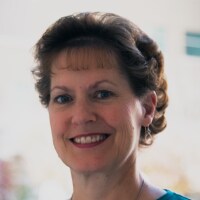BYU professor Jill N. Crandell, associate professor of history and director for the Center for Family History and Genealogy, was recently awarded the Ellen Hardin Walworth Medal for Patriotism by The Daughters of the American Revolution.
According to Crandell, she was given the award in recognition of her work with the Center for Family History and Genealogy in support of the Defense POW/MIA Accounting Agency in Washington D.C.
Crandell explained the mission of the DPAA is “to achieve the fullest possible accounting for missing and unaccounted-for U.S. personnel to their families and the nation.”
BYU’s Center for Family History and Genealogy has been partnering with the DPAA to help with the identification of World War II army service members who did not return from the war. The DPAA works to contact the next living kin of service members who are able to be identified. Crandell’s genealogical work helps locate family members who could receive the remains of identified service members and arrange for a burial.
 Upon receiving the email that notified Crandell of the award, she said she remembers feeling deeply honored by the recognition.
Upon receiving the email that notified Crandell of the award, she said she remembers feeling deeply honored by the recognition.
“I have always had a great love for my country, and I’m grateful for the opportunity to work on this project and assist our military families,” Crandell said.
For Crandell, this project provides her and the students she works with the opportunity to give back to those who lost their lives serving their country.
Along with identifying remains, Crandell and her team also conduct research to identify DNA donors so the DPAA can build a database of samples to compare newly discovered remains.
Professor Lenore Carrier has worked with Crandell for the past eight years and has been impressed by Crandell’s ability to manage her many responsibilities as director of the Center for Family History and Genealogy.
“Professor Crandell has many important responsibilities that pull her in a variety of different directions every day, but no matter how busy she is, and she is really busy, she always feels and demonstrates that mentoring students is her highest priority,” Carrier said.
Crandell’s colleague, BYU history professor Jay Buckley, praised Crandell’s work and shared he believes she is very deserving of the recognition. Buckley was also a keynote speaker at the annual convention for the Daughters of the American Revolution where Crandell received her award.
“Receiving the Ellen Hardin Walworth Medal for Patriotism is a great honor, and Crandell and her BYU team of collaborators and student researchers should be proud of their contributions to this important project,” Buckley said.
Crandell has supervised and mentored hundreds of students in historical and genealogical research and always emphasizes solid research and high genealogical standards, Carrier said.
“I overwhelmingly agreed that Professor Crandell was deserving of this prestigious award. As a DPAA research partner fellow, I know firsthand that she personally reads and edits each and every genealogy report that is submitted to DPAA,” Carrier said.
Carrier believes Professor Crandell’s work with the DPAA Repatriation Project is unparalleled; she explained her participation in that project is only a small part of what she has accomplished throughout her career.
“Professor Crandell has too many achievements to list, but the breadth of her degree of service to the industry is significant and impressive,” Carrier said.
Buckley also expressed admiration for his colleague and said everyone who meets Crandell can not help but be impressed with all she is able to accomplish.
“Her only deficiency is that she has not been able to clone herself,” Buckley said.
In addition to her work with the DPAA Repatriation Project, Crandell is also currently researching the early residents of Nauvoo and compiling a list of all who served in the Mormon Battalion.
 Latest News Articles
Latest News Articles Do you have an RSS newsreader? You may prefer to use this newsletter's RSS feed at:
Do you have an RSS newsreader? You may prefer to use this newsletter's RSS feed at: